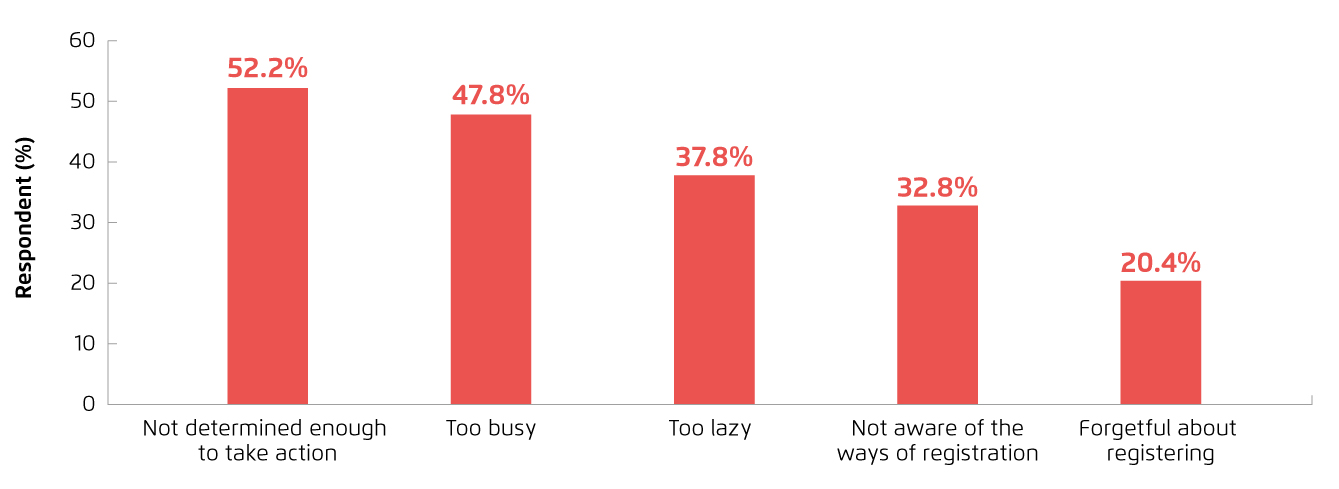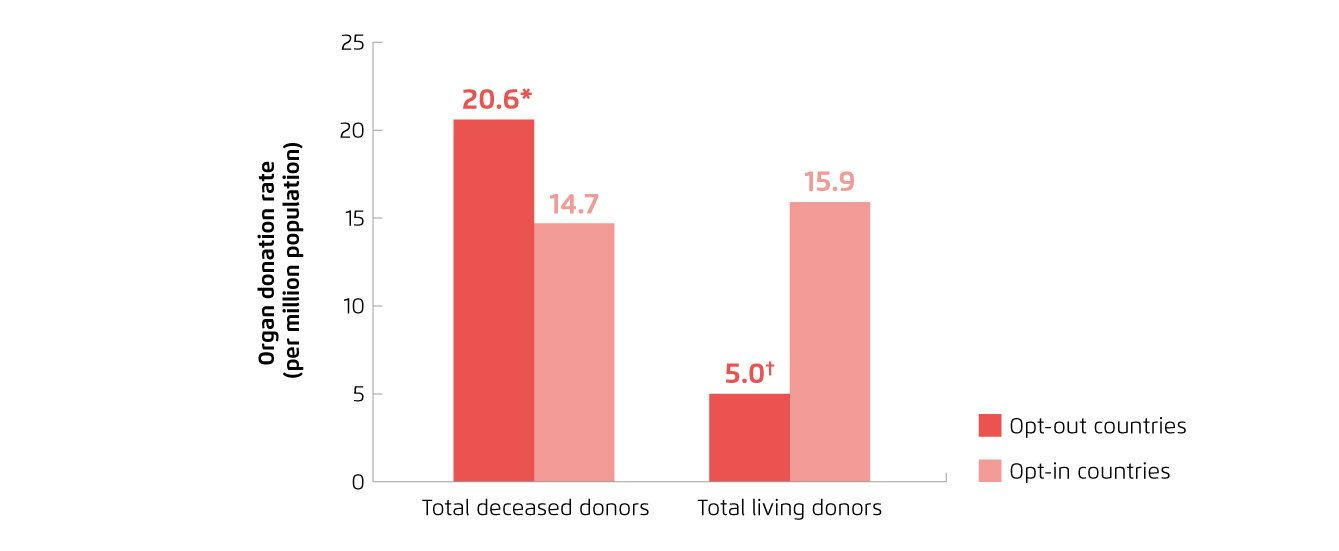
Every Second Counts: Bequeath your Love and Light up Lives
Despite the medical advancements, organ transplantation has become the only treatment option for some patients with end-stage organ failure1. Organ transplantation is a multidisciplinary life-saving procedure as a consequence of the advances in immunosuppression, surgical techniques and intensive care management2. However, the remarkable mismatch between severely inadequate supply and soaring demand for donated organs is a prominent problem in Hong Kong. Nevertheless, simply diverting to opt-out system may not confer an automatic increase in organ donation rate3. Instead, raising public awareness and promoting organ donor registration are of unquestionable importance in increasing organ donation rate4.
An Urgent Need for Donated Organs
As at 31st March 2021, more than 2,000 patients in Hong Kong wait desperately for the suitable organ every day5. Among all types of solid organs, there is a greatest scarcity of donated kidney5. Organ donation is generally categorised into deceased donation and living donation, whereas a majority of organ donations are from deceased donors5. Yet, the overall organ donation ratio in Hong Kong is substantially low compared with other countries6. For instance, Hong Kong had an organ donation ratio of 3.86 deceased donors per million population in 2019, whereas the corresponding ratios were 49, 36.88 and 24.88 donors per million population in Spain, the United States and the United Kingdom respectively6.
Underlying Factors Hindering the Registration at CODR
In Hong Kong, the Centralised Organ Donation Register (CODR) is set up for prospective donors to voluntarily register and express their wishes to donate organs after death7. In addition, it informs the bereaved family the wish of the deceased to rekindle the lives of other people7. However, a local cross-sectional telephone survey revealed some worrying statistics related to the apathetic attitudes and behaviours of respondents regarding organ donation4. Although some respondents in this survey had a positive attitude towards organ donation, only one-third of those respondents actually completed registration at CODR4. Among those who were willing to donate organs after death but had not yet registered at CODR, a majority of them lacked the determination to register as organ donors, along with other reasons (Figure 1)4.

Figure 1. Reasons for the refusal of organ donor registration among those who were willing to donate organs after death but had not yet registered on CODR4
Can an Opt-out System Encourage Organ Donation?
Currently, Hong Kong is adopting the opt-in system based on the voluntary decisions of people to donate and the family consent to the donation after death. Accordingly, those who have given explicit consent will be the organ donors8. Nonetheless, the low organ donation rate has led to an intense debate in recent years about whether Hong Kong should introduce an opt-out legislation to further promote organ donation8.
Opt-out, defined as default registration as an organ donor with the option to unregister9, is extensively adopted in other countries including Spain and Singapore8. Spain is lauded as an exemplar model for a successful deceased organ donation system, which has continuously achieved a high ratio of deceased organ donation per million population6,10. However, implementing an opt-out system may raise a public concern about compromising the ethical values as it may violate the individual autonomy or fail to respect personal preference8. Most of the countries with an opt-out system including Spain use only a “soft” approach, in which family members have the rights to veto the organ donation even the deceased does not express a formal objection8. Therefore, the acceptability of such legal shift in social context has to be cautiously analysed.
Although it is generally recognised that an opt-out system is likely to bridge the enormous gap between behaviour and intention of prospective donors by eliminating the need to take any action and become a donor, organ donation is a multifaceted topic that may not be necessarily encouraged by solely switching from opt-in to opt-out system10. In fact, in reference to the real-world data among 35 countries implementing either opt-in or opt-out approach, there was no significant difference observed in total deceased donor rates in per million population but there was a reduction in the number of living donors in opt-out countries (Figure 2)10. These contradictory and largely inconclusive data suggested that the organ donation rate is multi-causal and the deceased donor rate does not certainly boosted with a simplistic shift to opt-out strategy10. Legislation alone is not sufficient to address the critical donor shortage, whereas the importance of collective actions to tackle other barriers is underscored3.

Figure 2. Comparison of median donor rates from the Global Observatory for Donation and Transplantation between 18 opt-out countries and 17 opt-in countries in 201610. *p=non-significant compared with opt-in countries. †p<0.001 compared with opt-in countries.
The Most Generous Gift to Light up Lives
Organ donation is indeed a complex topic whereas the rate of organ donation is lagging far behind the increasing demand in Hong Kong. The discrepancy between the urgent need of cadaveric organs and the public reluctance to register as organ donors cannot be simply fixed with a shift to an opt-out system4,10. Rather, it is crucial to address other barriers including the hesitation of passive-positive donors to register as organ donors. In fact, raising public awareness is the key to expanding organ donation registration. Collaborative efforts are required to proactively reach out to passive-positive donors and convert their willingness into action, whereas combining social media promotion and motivational interaction may have synergistic effects to engage the general public4.
References
1. Hong Kong Organ Transplantation Foundation. Organ Donation Knowledge. Available at http://hkotf.org/en/odknowledge/. (Accessed: 24 June 2021). 2. Buckley TA. Hong Kong Med J 2000;6:399-408. 3. Ethe redge HR. Risk Manag Healthc Policy 2021;14:1985-1998. 4. Teoh JYC, et al. Hong Kong Med J 2020;26:192-200. 5. Department of Health. Organ Donation-Statistics. Available at https://www.organdonation.gov.hk/eng/statistics.html. (Accessed: 24 June 2021). 6. The International Registry on Organ Donation and Transplantation. Database. Available at https://www.irodat.org/?p=database#data. (Accessed: 24 June 2021). 7. Department of Health. Light up Lives-Support Organ Donation and Tell Family about Your Wish. Available at https://www.organdonation.gov.hk/resources/organdonationleaflet_eng.pdf. (Accessed: 24 June 2021). 8. Fan RP, Chan HM. Hong Kong Med J 2017;23:658-660. 9. Ahmad MU, et al. World J Surg 2019;43:3161-3171. 10. Arshad A, et al. Kidney Int 2019;95:1453-1460.





